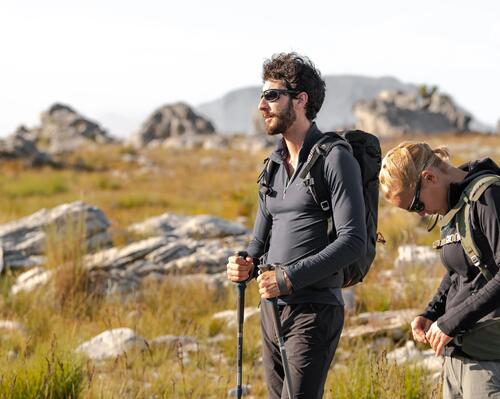Why exercise in the mountains?
Mountains are good for our health on many levels but before Grégoire Millet explains how mountains can help improve your sporting performance, I'd like to list other benefits of exercising at high altitude.
↪️ Reduced risk of certain illnesses
Today, it's been repeatedly proved that “the higher the altitude at which you live - namely between 300 and 1,500 metres above sea level - the lower the risk of risk dying from cardiovascular disease, breast cancer for women and colorectal cancers for men," explains the specialist.
And it's the same when it comes to neurodegenerative illnesses: "It's been shown that people who live in the mountains or visit regularly and enjoy regular or occasional exposure to high altitudes are less likely to develop certain illnesses such as Parkinson's," he adds.
👉 Our sporting and health advice
↪️ Fat loss
Today, there is evidence to confirm that altitude has an effect on our body composition, specifically our body fat and lean mass. Grégoire Millet explains that "when we're at high altitude we tend to have smaller appetites". It has been observed that high altitude affects our feelings of hunger and sense of fullness. This could result in us eating less when in the mountains particularly at very high altitudes.
He adds: "Conversely, our energy expenditure tends to increase in the mountain (through greater physical activity) which, therefore, increases our metabolism”. And faster metabolism means more calories burned every day. And if, in addition, we eat less, the energy balance is reversed which may lead to weight loss.
👉 Our weight loss advice
↪️ Sleep
"If you take time to acclimatize, you ascend gradually and don't train too hard or too quickly in the mountains, you may be able to better regulate your sleep," explains Grégoire Millet.
Conversely, our specialist explains that "if you ascend too quickly, it can disrupt your sleep." Why? Simply because "our breathing rate increases at high altitude (Editor's note: I'll tell you a little bit more about this phenomenon later in the article) and so it's quite common to experience periodic breathing which will affect the quality of your sleep." .
👉Sleep: critical for physical activity
↪️Mental state
“A physical exercise performed in a forest or at high altitude will have a more significant effect on the mood and well-being," than the same exercise performed in town, for example, according to Grégoire Millet.
To achieve maximum benefit, you just need to visit occasionally, spending 3 to 4 days in the mountains several times a year.
In light of this, Grégoire Millet is convinced that "we should advise people over the age of 65 to regularly travel to high altitude destinations."It's good for their vascular and mental health."








